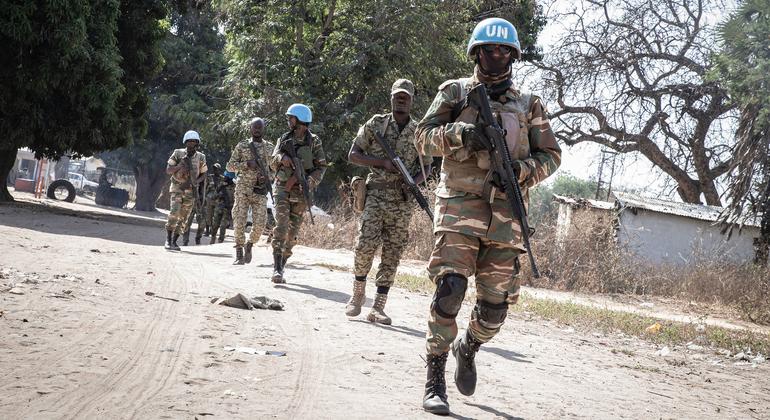The United Nations mission increases its presence in the conflict-hit southeast region of the Central African Republic

Summary of ambassadors at Security Council about the situation of the country, the head United Nations Mission Valentine Rugwabiza said the additional deployment would also facilitate the delivery of humanitarian aid in the volatile and hard-to-reach Haut Mbomou region.
Bordering South Sudan and the Democratic Republic of Congo, the region – larger than Switzerland – is a flashpoint for conflict due to its strategic importance and limited access.
“In a very short time, working closely with national and local authorities, local communities and humanitarian partners, The mission is making tangible and transformative progress on the security, humanitarian and peacebuilding fronts. in Haut Mbomou,” she said.
The expansion MINUSCAThe footprint there also paves the way for the expansion of the powers of the CAR civil administration and security forces through the ongoing restoration of the Bangassou-Obo-Bambouti axis.
Mission Background
The UN mission was established in September 2014 following a deadly outbreak of intercommunal violence between the mainly Muslim Séléka group and the mainly Christian anti-Balaka movement.
Its tasks include: protect civilians is a “top priority” along with supporting humanitarian activities, protecting and promoting human rights, and disarming, demobilizing, reintegrating and repatriating combatants from neighboring countries.

A joint MINUSCA-CAR armed force patrols the Haut Mbomou district. (document)
Conflict between farmers and herders
Successive political and security crises in the Central African Republic have made pastoralism (seasonal changes in the grazing patterns of pastoralist communities) a source of violence.
Ms Rugwabiza referred to the recent killing of 16 civilians in the village of Limé, in the west of the country, due to a land conflict between local farmers and cattle ranchers.
The incident is a “stark reminder” of the urgent need to reverse the dynamics of violence and reposition livestock and human trafficking to help promote peaceful coexistence, stability and economic development, she stressed.
Upcoming election
Ms. Rugwabiza continued to update ambassadors on preparations for local elections, scheduled to take place in October for the first time in more than 36 years.
She emphasized that MINUSCA will continue to provide multilateral support for election preparations, a key provision of the Political Agreement for Peace and Reconciliation in CAR.
This includes through awareness raising to mobilise broad and safe participation, especially of women, she said.
Fight misinformation
During her press conference, Ms. Rugwabiza expressed deep concern about the “persistent campaign” of misinformation and disinformation that poses a threat to MINUSCA personnel and the mission’s objectives.
This “further complicates” the already challenging environment for peacekeepers, she said.
“I call on the government to hold accountable those individuals identified, including civil servants, who have carried out and repeated such campaigns aimed at…restricting the mission’s ability to carry out the tasks mandated by the government. [Security] Council and requested by CAR national authorities,” she added.




